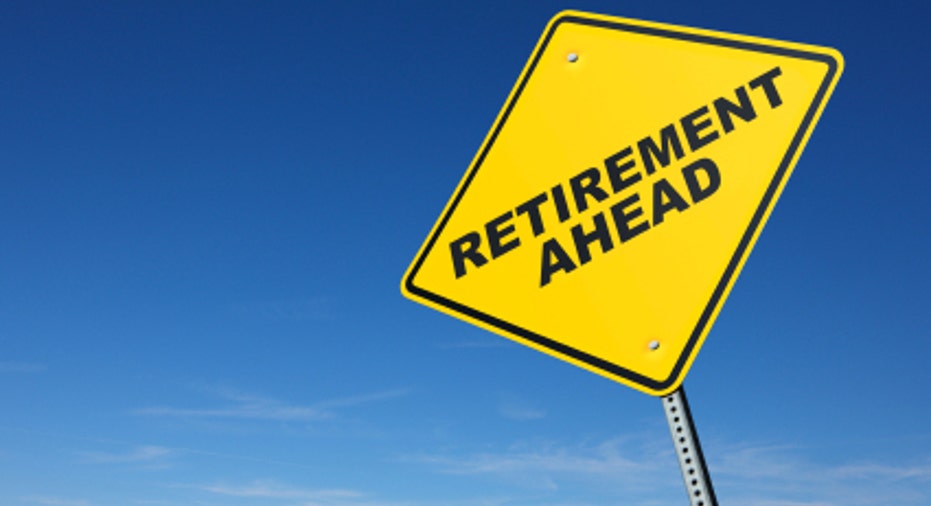Withdrawing vs. Borrowing From 401(k) to Pay Credit Card Debt

Dear New Frugal You,
I need some advice. My credit card debt is becoming a problem. Ever since they cut my hours at work, I've only been able to pay the minimum. This month, altogether my balance is $9,700. It's been growing a little each month. I'm thinking of making a withdrawal from my 401(k) to pay off the credit cards. I'd do it except for the penalties and the fact that I just turned 40 so I'm starting to think about retirement. What should I do?
- Nick
Dear Nick,
Good question and one that's frequently asked. With the economic recovery lagging, many of us who are lucky enough to have jobs have nevertheless gone five years without a raise or even suffered reduced hours.
Money that we stashed away in a 401(k) plan looks tempting, especially when we're struggling to make minimum payments.
So let's see if we can help you decide whether to raid that 401(k) to pay off your credit card debts.
Let's begin by seeing what happens if you pull the money out of your 401(k) and use it to pay off credit card balances.
Any money that you take out will be subject to ordinary income tax. For illustration, we'll assume that you're in the 25% tax bracket (income from $36,251 to $87,850 for single filers).
And, unless you qualify for a hardship exception, you'll also pay a 10% early withdrawal penalty.
It's unlikely that you qualify for a hardship. According to the Internal Revenue Service, a qualifying hardship is one in which you face "immediate and heavy" expenses defined as: "(1) certain medical expenses; (2) costs relating to the purchase of a principal residence; (3) tuition and related educational fees and expenses; (4) payments necessary to prevent eviction from, or foreclosure on, a principal residence; (5) burial or funeral expenses; and (6) certain expenses for the repair of damage to the employee's principal residence."
You haven't said you face one of those qualifying expenses, so 35% of any money you withdraw will probably go to the IRS. We'll also assume that you want to end up with $10,000 (the math is much easier to illustrate).
The formula to determine what to withdraw is the amount of money you want ($10,000) divided by the percentage of the withdrawal you get to keep (in this case 1 minus 35% = 65%). So $10,000 divided by .65 = $15,385. You'll need to take out more than $15,000 from your 401(k) to pay off the cards.
If you do that the benefits are clear. You won't have that credit card balance haunting you each month. But the costs are harder to see.
That's because you won't face the costs until you retire. To illustrate, we'll assume that you were able to earn 5% on that money if you left it in the 401(k). At that rate, the money would double every 14 years. So by the time you retire in your late 60s, it would have doubled two times and would be worth about $60,000.
Most retirement experts say that you can safely take about 3% of your principal each year in retirement. So that $60,000 would be about $1,800 per year or $150 a month for the rest of your life and still leave the original $60,000 as an inheritance for your children.
Let's try looking at a different option. Suppose that instead of taking a withdrawal you choose to borrow from your 401(k). Because it's a loan and not a withdrawal you won't pay taxes on it.
But there will be an interest rate applied to the loan. Check with your plan administrator to find out what the interest rate will be.
It is likely that your 401(k) loan will have a lower interest rate than what you're paying on your credit cards. Your human resources department at work should be able to tell you what your loan payment will be. You can compare that to your current credit card payments.
However, those lower payments don't come without a risk. Generally you need to repay the whole 401(k) loan amount if you leave your job. So you're stuck in your job until the loan is repaid. And a layoff could be a real problem.
Another possibility would be to check out nonprofit credit counseling. If you qualify, they can get a reduced interest rate and a lower payment from your card issuer for you. You can find them through the National Foundation for Credit Counseling or Association of Independent Credit Counseling Agencies.
A final option would be to find a way to make up for the lost hours via a part-time job. Use the extra earnings to pay down your debts.
Ultimately that might be the best option. If your expenses regularly exceed your income you'll continue to have a debt problem. Even if you wipe the slate clean today, you'll only start building a new balance next month, which will only return you to the situation in which you are now.
See related: Using 401(k) money to pay down debt



















